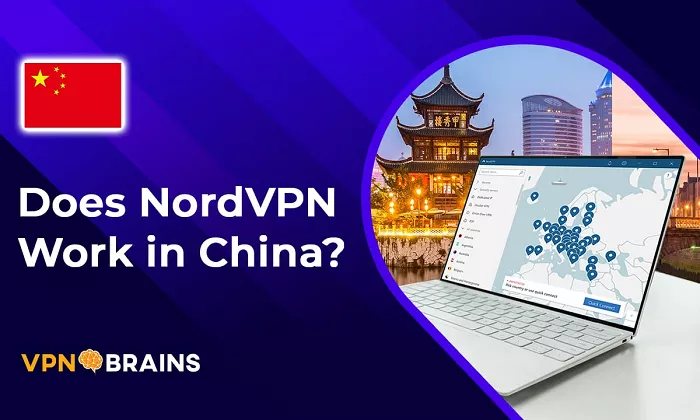Accessing the global internet from within China can be challenging due to the country’s strict internet regulations, commonly referred to as the “Great Firewall of China.” Many users turn to Virtual Private Networks (VPNs) to bypass these restrictions and access blocked content. NordVPN is one such service that has been popular among users seeking to maintain their online freedom. However, the effectiveness of VPNs in China has been a topic of concern in recent years.
What is the Great Firewall of China
China’s internet censorship system, known as the Great Firewall, is designed to control and monitor internet traffic within the country. It restricts access to various foreign websites and services, including popular platforms like Google, Facebook, and Twitter. The government employs advanced technologies to detect and block VPN traffic, making it increasingly difficult for users to bypass these restrictions.
NordVPN’s Historical Performance in China
In the past, NordVPN was recognized for its ability to circumvent internet censorship in countries with strict regulations, including China. The service offered specialized features, such as obfuscated servers, designed to mask VPN traffic and make it less detectable by government filters. TechRadar, a reputable technology review site, recommended NordVPN for its effectiveness in bypassing state-level internet censorship, including the Great Firewall of China.
Current Status of NordVPN in China
As of 2023, there have been significant developments regarding the use of NordVPN in China. Reports indicate that NordVPN is no longer accessible within the country. This change means that users in China may face difficulties or be entirely unable to connect to NordVPN’s services.
Factors Contributing to VPN Restrictions in China
Several factors have contributed to the increased difficulty of using VPNs like NordVPN in China:
- Advanced Detection Techniques: The Chinese government has implemented sophisticated methods to identify and block VPN traffic, including deep packet inspection and machine learning algorithms.
- Targeted Crackdowns: There have been periodic crackdowns on VPN usage, with the government targeting both VPN providers and users to enforce compliance with local regulations.
- Licensing Requirements: Only government-approved VPNs are permitted to operate legally within China, and these services are typically required to adhere to strict monitoring and censorship policies.
Alternatives for Users in China
For users seeking to maintain internet freedom within China, considering alternative methods or services is essential:
- Other VPN Providers: Some VPN services continue to operate in China by employing advanced obfuscation techniques. However, their effectiveness can vary, and users should research current reviews and reports to identify reliable options.
- Shadowsocks: This open-source proxy project is designed to help users bypass internet censorship. It is more difficult to detect than traditional VPNs but may require technical expertise to set up and use effectively.
- Tor Network: The Tor network anonymizes internet traffic and can help users access blocked content. However, it may be slower than other methods and is also subject to detection and blocking by Chinese authorities.
Risks and Considerations
While attempting to bypass internet restrictions, users should be aware of the potential risks:
- Legal Implications: Using unauthorized VPNs or proxy services may violate local laws and regulations, leading to legal consequences.
- Security Concerns: Unreliable or malicious VPN services can compromise user data, leading to privacy breaches or cyberattacks.
- Service Reliability: Even if a VPN service works initially, the dynamic nature of internet censorship in China means that access can be revoked at any time.
Conclusion
While NordVPN has historically been a reliable option for users in China seeking to bypass internet censorship, recent developments indicate that its services are no longer accessible within the country as of 2023. Users should exercise caution and stay informed about the legal and technical challenges associated with using VPNs in China. Exploring alternative methods requires careful consideration of the associated risks and a thorough understanding of the current regulatory environment.

